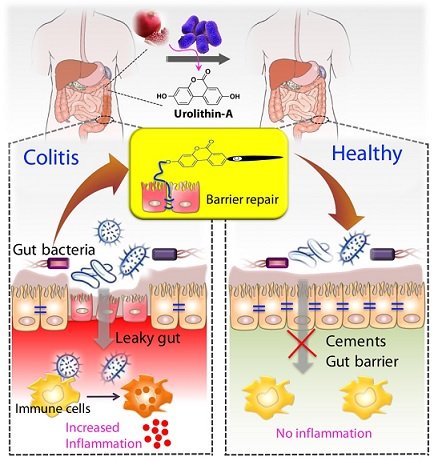A group of Indian researchers has found that a substance formed during the process of metabolism of berries and pomegranates in the human gut may help mitigate inflammatory bowel disease (IBD) that afflicts millions of people globally.
IBD is usually marked by chronic intestinal inflammation and does not have any effective remedy at present. The metabolite formed during the breaking down of berries and pomegranates in the gut with the help of gut bacteria boosts certain proteins critical for keeping the gut lining strong.
The metabolite helps the cells in gut lining to remain glued to each and not allow toxins to penetrate. The researchers have also found a synthetic version of the metabolite to be effective in laboratory studies.

The microbial metabolite called Urolithin A (UroA)) derived from berries and pomegranates have been found to boost cell junction proteins. The metabolite is derived from polyphenolics of berries. Metabolites are intermediary products produced during the process of metabolism.
The researchers have also found the mechanism by which the microbial metabolite and its analog reduce inflammation and restore gut barrier integrity. Restoring the gut barrier and reducing the inflammation using a small-molecule will provide a better therapeutic output in the treatment of IBDs.
The researchers plan to set up a start-up based on this technology and aim to develop the molecule as a drug.
This is a Indian Science Wire story, Edited by Clean-Future Team






